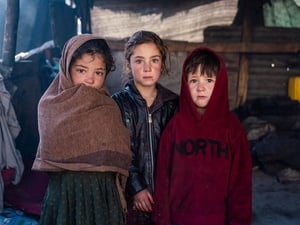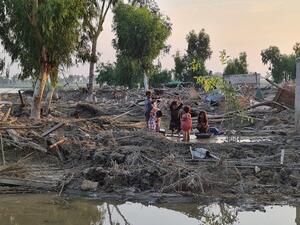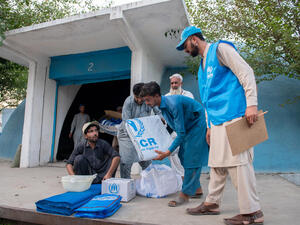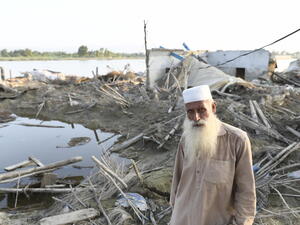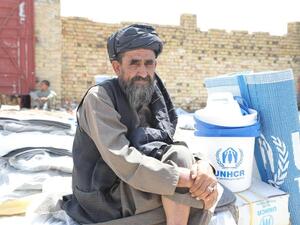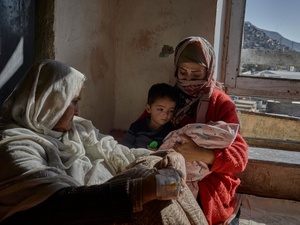UNHCR to start relocating Afghans before closing camp
UNHCR to start relocating Afghans before closing camp

Afghans at the "waiting area" have endured more than a year of harsh conditions in their makeshift camp.
CHAMAN, Pakistan, June 27 (UNHCR) - Hundreds of Afghan refugee families are set for relocation next week when the UN refugee agency starts clearing a controversial makeshift camp just inside the Pakistani border. The camp, better known as the "waiting area", is expected to close by July 15.
On Monday, June 30, 100 Afghan families will be moved to Zhare Dasht camp, near the southern Afghan city of Kandahar. Tuesday will see the transfer of another 200 families to Mohammad Kheil camp in Pakistan. Eventually, all 19,605 residents of the "waiting area" should be relocated on convoys travelling to the two camps on alternate days.
The decision to close the makeshift Afghan settlement at the "waiting area" was taken in May at the first meeting of the Tripartite Commission, a body set up under an agreement by Afghanistan, Pakistan and UNHCR to set policy on the voluntary repatriation of Afghan refugees until 2005.
Since February 2002, the "waiting area" has been home to tens of thousands of Afghans who fled the war against the Taliban but were stranded when Pakistan banned the entry of additional refugees.
Located on the Afghan-Pakistani border, this area is on a smuggling route and has always been considered unsuitable for a refugee camp. The lack of security was underlined in the past month when the bodies of 22 fighters killed in a nearby battle with Afghan government troops were dumped in the centre of the refugee settlement, terrifying its residents.
In addition, Pakistani authorities, who were anxious to prevent the area from becoming a permanent village, would not allow UNHCR to provide more than basic humanitarian aid such as food and water. Aside from a few UNHCR tarpaulins distributed to emergency cases a year ago, the refugees live under ragged home-made tents.
The site is notorious. In summer the "waiting area" faces 40° Celsius heat, in winter temperatures plunged well below the freezing point. Last December UNHCR rushed in blankets and stoves to prevent deaths. Residents also have to endure a wind that raises choking clouds of dust and blows across the southern Afghan plateau throughout the year.
Since the decision was taken to close the area, virtually all of the residents have gone to the registration tents to tell staff where they would like to relocate.
"Initially we had fears that people would not want to move, but when the message was loud and clear that the area would close, they started to come," said Khalid Sidiqi at the UNHCR tent where he was overseeing the registration of refugees.
The Afghans have a choice of returning to their homes in Afghanistan, transferring to the existing refugee camp of Mohammad Kheil or moving to a new settlement for internally displaced Afghans at Zhare Dasht.
With less than 300 families still waiting to register, more than 59 percent have asked to move to Zhare Dasht, which was opened last year. More than 40 percent chose Mohammad Kheil, a camp now hosting 37,000 refugees that was opened for those fleeing the 2001 war in Afghanistan. Only about 20 families have asked for UNHCR assistance to return to their homes in Afghanistan.
"It would have been better if the Pakistan authorities left us staying in the 'waiting area', but now that a date has been fixed for emptying the place, we have opted to be relocated to Zhare Dasht inside Afghanistan," said Asshak Khan from Ghazni province. "We cannot return our places of origin but we prefer Zhare Dasht over Mohammad Kheil."
The UN refugee agency, in co-ordination with the two governments, has set a July 15 deadline for closing the "waiting area", although assistance for those registered to leave will continue until the relocation is complete.


